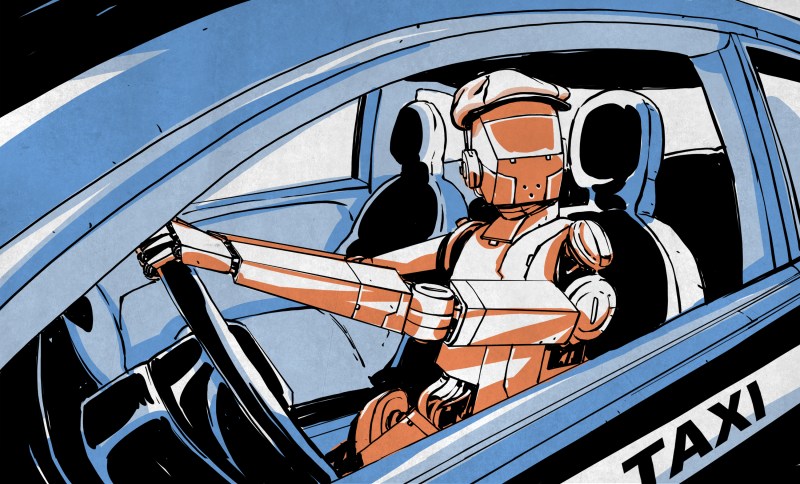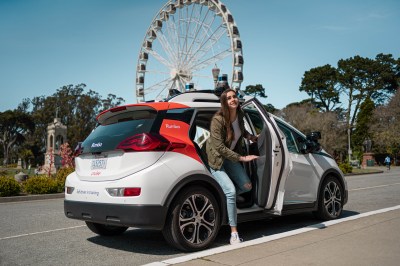
The automotive industry is rushing towards autonomous vehicles as a futuristic ideal. They haven’t got the autonomous part sorted just yet. However, as part of this push, the technology to drive vehicles remotely via video link has become mature.
In the United Kingdom, there has been great controversy on whether this should be allowed, particularly for vehicles piloted by individuals outside the country’s borders. That came to a head with a Law Commission repot published earlier this year, but since then, innovative companies have continued to work on remote driving regardless. Let’s dive in to the current state of play.
Why Go Remote?

Limited remote-driving technologies are already in common use, such as in industrial sites, mines, or the parking-summon features available on some new cars. However, full remote driving on public roadways is the key matter of interest of late, which would offer serious productivity improvements to a variety of industries.
A prime example is to allow the convenient delivery of rental cars. Typically, to deliver a rental car, a driver would have to drive the to the customer from the storage depot, and then make their way back by another means of transport. It’s a time consuming and inconvenient task. Ihe car could be remotely driven by a worker at a computer, this issue would be eliminated. Once one delivery was complete, the worker could log in to another vehicle and drive it to the next customer without ever leaving their seat. It’s not hard to imagine similar benefits for the trucking industry and other transit sectors.
New Rules Needed
However, the technology has drawn the ire of the Law Commission of England And Wales. The independent statutory body is charged with reviewing and making recommendations on the law of the land, and published advice to the government concerning remote driving earlier this year.
By the nature of the way vehicles used to work, there is currently no rule in the UK that drivers must be inside the vehicle they are controlling. This would naturally open the doors for remote control of vehicles on UK roadways. However, the commission has recommended that the government bring in new legislation to control and restrict remote driving. Key concerns surround the issue of responsibility. Presently, a driver who causes a harm out on the road can be held responsible for their actions. With the rise of remote driving, however, this becomes more difficult. Presently, if somebody remotely controlling a vehicle from outside the country were to recklessly cause a crash in the UK, it would be difficult or impossible to hold them responsible for the incident.
The report notes that there should be robust rules that ensure remote drivers are responsible for their actions just as if they were directly behind the wheel. However, at the same time, drivers shouldn’t be held accountable for issues beyond their control, such as a crash caused by a temporary loss of connectivity to the vehicle. International agreements would be required to enforce liability across borders. Failing that, the report suggests remote drivers from overseas should not be allowed to control vehicles operating in the UK.
The overall thrust of the report from the Law Commission is that while the technology promises exciting benefits, there is a need for new legislation to ensure it is used appropriately and safely. It also highlighted issues around cybersecurity, in which remotely-driven vehicles could be potentially hijacked by bad actors. Beyond that, it also explored the human factor—where drivers may inadvertently be less attentive or alert when driving a vehicle remotely. The review advised that new laws would be required to shore up these issues, while also making it definitively clear whether remote driving was legal in the UK, and on what grounds.
The State of Play
While the Law Commission’s report takes a very conservative approach, that hasn’t stopped innovators in the field from charging ahead with their work. Imperium Drive has been a leader in this area. The company has recently rolled out remote driving with its Fetch vehicle system after 18 months of trials in Milton Keynes. It’s not the only player in the industry, but it’s a forefront player in the UK’s nascent remote driving space.
Fetch uses cars that are remotely controlled by operators at the company’s head office. The cellular network is used to let the cars communicate back to base, with 360-degree cameras used to provide the remote driver a complete view of the road. The remote driver controls the car with a steering wheel and pedals, while taking in the view via an array of screens.
Customers can hail a Fetch car via a mobile app within four miles of the Milton Keynes city center. The car is then remotely driven to the customer by a Fetch operator. The customer can then drive the car themselves just like a regular rental car, with a remote operator then driving the car back to base when the rental is concluded. The company states that for short trips, the service is as convenient as a taxi or rideshare, while it comes in significantly cheaper for customers travelling longer distances. Customers will be liable for paying an insurance excess while they are driving the vehicle, just like any other rental car. Obviously, this won’t apply in the event the car has an issue while being remotely driven.
Imperium Drive hopes that in time, its system could replace the need for private car ownership. The company is working on full autonomy as well in pursuit of this goal. For now, it operates four electric cars in Milton Keynes, with plans to add city-to-city and airport transfer services in future.
The company has had to develop a range of technologies to support its remote driving system. While lag or dropouts are frustrating in an online game, when driving a real vehicle on the road, they spell disaster. Imperium Drive employs advanced algorithms to predict and assess the quality of its vehicle’s data links. It uses this information to prioritize sending the most crucial data for driving the vehicle safely. Beyond that, its vehicles have been programmed to gracefully handle signal losses and other link issues to avoid interference or network problems from causing crashes out on the road.
Going Forward (Remotely)
Industry groups and investors alike will welcome clear regulation on remote driving going forward. At least as far as the UK is concerned, it may require companies wishing to operate remote-drive services in the country to offer some kind of guarantee as to taking responsibility for any incidents caused out on the road. New legislation is yet to land, and in the meantime, the technology is seemingly outpacing the rules currently on the books. Expect that to change as governments around the world prepare for the rise of remote and autonomous driving in future.
0 Commentaires